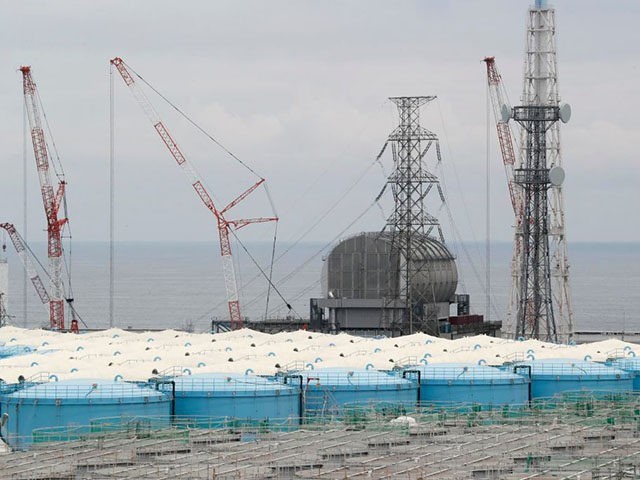Outraged South Korean officials demanded answers this week after Japan revealed plans to discharge radioactive water from the Fukushima nuclear power plant into the ocean.
This month, the operator of the Daiichi nuclear power plant in Fukushima — destroyed in the 2011 tsunami disaster — announced potential plans to dump large quantities of contaminated water from the site directly into the Pacific Ocean, although no final decision on its disposal will be made until the government receives the relevant report from a group of nuclear experts.
“The only option will be to drain it into the sea and dilute it,” said Japanese Minister of the Environment Yoshiaki Harada at a news briefing last week. “The whole of the government will discuss this, but I would like to offer my simple opinion.”
Addressing the International Atomic Energy Agency (IAEA) conference on Monday, South Korean Vice Science and ICT Minister Moon Mi-ock warned that the IAEA and its member states must engage in “concerted efforts” to persuade Japan against the idea, which she warned would become an “international issue that can affect the whole global marine environment.”
“Japan must take substantive and transparent measures and actions that can ensure the health and safety of the world and safeguard the environment,” she said.
Moon’s warning is the first time that Seoul has raised the issue on the international stage and sparked anger from Tokyo’s ambassador to the IEAE in Vienna, Takeshi Hikihara, who described it as “unacceptable” and “based on the assumption that the water would be discharged into the ocean.”
According to the Asahi Shimbun, Hikihara argued that Japan “already accepted on-site inspections by an IAEA team of experts and its actions to deal with radioactive water had been well-received.” He added that Japan “is still studying ways to dispose of the water and will continue to disseminate its plans.”
The Japanese government’s Chief Cabinet Secretary Yoshihide Suga also dismissed Moon’s comments, saying that they were “not based on facts and scientific grounds” but instead on “baseless negative publicity.”
An estimated 1.1 million tons of water that were used to try to cool melting reactors during the 2011 nuclear disaster at the Fukushima nuclear plant remain in giant tanks near the site. According to Japanese officials, engineers have been able to remove most radionuclides from around 200 tons of excess water every day for the past eight years. However, the site’s 1,000 tanks are still estimated to reach full capacity by 2022.
They have also been unable to purge the water of tritium, a radioactive isotope of hydrogen, which coastal nuclear power plants are known to regularly dump into the sea.
In an editorial this week, the Korea Times argued that the discharge could “affect the marine ecosystems of South Korea and other nations in the Asia-Pacific region” and become a global environmental challenge.
“It was quite natural for Seoul to call for Tokyo’s sincere efforts to cope with the issue through collaboration with the international community, but the latter has remained lukewarm to the request, according to the South Korean government,” the editorial read. “Instead, senior Japanese officials, including Environment Minister Yoshiaki Harada, have expressed their support for the idea of dumping tainted water into the ocean.”
“What’s more worrisome is that some Japanese are seeing Korea’s protest in the context of an ongoing bilateral trade dispute,” it continued. “The release of contaminated water will affect not only Japan and South Korea but also the rest of the world. This is certainly an issue that needs global monitoring and cooperation.”
Follow Ben Kew on Facebook, Twitter at @ben_kew, or email him at bkew@breitbart.com.

COMMENTS
Please let us know if you're having issues with commenting.